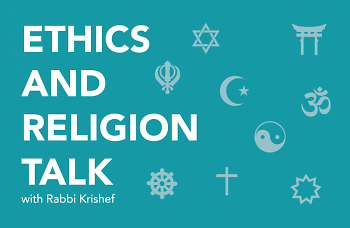Linda Knieriemen, a retired pastor of the Presbyterian Church (USA), responds:
A definition of the “sin against the Holy Spirit” has been a debate among Biblical scholars and theologians from Origen to Augustine to Calvin and beyond! John Calvin wrote the sin against the holy spirit is resisting divine truth, for the sake of resisting. By extension, it is a grievous sin to call evil good, lies, the truth; and Jesus, the Devil.
The concern about defining the sin against the holy spirit worries folk who think they may sin against the Holy Spirit but not be aware of it and thus carry an unforgiven sin into their death, preventing, if this is their belief, an afterlife in heaven. This fear can be ameliorated by returning to God in humility and faith and by so doing, prove that he/she does trust the Holy Spirit with their lives!
Whether or not there is a sin against the Holy Spirit we are seeing in our world today the result of resisting truth, or redefining what truth is.
George Orwell in his dystopian novel “Nineteen Eighty-four” describes a government which teaches that “War is peace, ignorance is strength, slavery is freedom.” A political party, legislator which promotes or does not refute this doublespeak might ponder if the outcome will not be as devastating for freedom and democracy as for an individual who “Sins against the Holy Spirit.”
Father Kevin Niehoff, O.P., a Dominican priest who serves as Judicial Vicar, Diocese of Grand Rapids, responds:
There are no unforgivable sins. The Roman Catholic Church teaches that “blasphemy against the Spirit will not be forgiven” (Catechism of the Catholic Church, p. 456). Why?
The Church continues, “there are no limits to the mercy of God, but anyone who deliberately refuses to accept his mercy by repenting, rejects the forgiveness of sins and the salvation offered by the Holy Spirit. Such hardness of heart can lead to final impenitence and eternal loss.” (Ibid.)
What makes a sin against the Holy Spirit unforgivable? God willingly forgives because his mercy is infinite. The problem is a hardened human heart refusing repentance. The human refusal to offer repentance makes a sin unforgivable, not the judgment of God!
Fred Stella, the Pracharak (Outreach Minister) for the West Michigan Hindu Temple, responds:
Hinduism rejects the notion of a heavenly judge who dispenses rewards and punishments based on beliefs and behavior. According to the law of karma, whatever we do to others we ultimately do to ourselves. There is no outside source that regulates this process. This does not mean that we do not reap the comeuppance of our actions that in anyway negatively affect others. We have multiple lifetimes to deal with these issues. Clearly, some crimes against humanity are so grievous that one may have to be reborn many, many times to find some form of redemption.
And it is important to note that in all of my studies, I have never found the slightest indication that anything we say or do that might be directed at God in a negative way, such as blasphemy, anger, disbelief, etc., is something that we need be fearful of. And by extension, Hindus are not called upon to punish either one of their own or a non-Hindu for such behavior. Hindu majority India does have anti-blasphemy laws, but they were established at the request of other religions.
The Reverend Colleen Squires, minister at All Souls Community Church of West Michigan, a Unitarian Universalist Congregation, responds:
As a general rule Unitarian Universalist theology does not really deal with the ideas around sin as most other religions do. But I think to be indifferent to the suffering of others would be a great sin. To lack compassion and empathy would also be a great sin.
My response:
We are now on the countdown to the Jewish New Year and the Day of Atonement, whose primary theme is repentance and forgiveness. We go into the month leading into the holidays with the spirit of repairing the things we have done wrong and rectifying relationships that we have damaged by our careless actions. In general, a sin can be forgiven by God if it can be repaired. Yet there are some sins which cannot be repaired – murder or the abuse of a child come to mind as examples. Yet there is an end-of-life prayer which addresses this: “May my death atone for all the errors, iniquities, and willful sins that I have committed.”
Ultimately, it is our responsibility to make sincere efforts to rectify our mistakes. When we die, we leave it in the hands of God to determine if our merits outweigh our sins enough to pass judgement.
This column answers questions of Ethics and Religion by submitting them to a multi-faith panel of spiritual leaders in the Grand Rapids area. We’d love to hear about the ordinary ethical questions that come up in the course of your day as well as any questions of religion that you’ve wondered about. Tell us how you resolved an ethical dilemma and see how members of the Ethics and Religion Talk panel would have handled the same situation. Please send your questions to [email protected].
The Rapidian, a program of the 501(c)3 nonprofit Community Media Center, relies on the community’s support to help cover the cost of training reporters and publishing content.
We need your help.
If each of our readers and content creators who values this community platform help support its creation and maintenance, The Rapidian can continue to educate and facilitate a conversation around issues for years to come.
Please support The Rapidian and make a contribution today.
